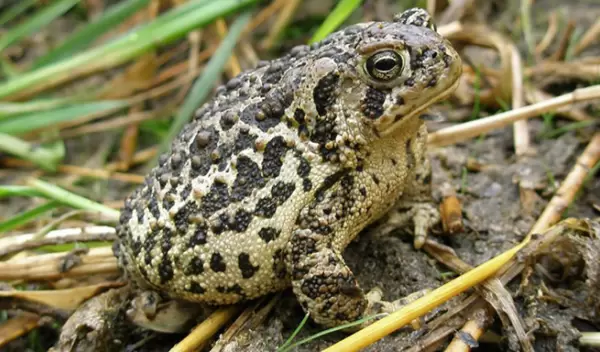
Decreased genetic diversity in immune system could affect endangered toads' survival
A new study by U.S. National Science Foundation grantees at North Carolina State University examines immune system diversity in the critically endangered Wyoming toad and finds that genetic bottlenecks could impact a species' ability to respond to new pathogens. The results could inform captive breeding strategies for endangered animal populations. The research appears in Conservation Genetics.
The Wyoming toad, Anaxyrus baxteri, suffered a severe population decline in the latter part of the 20th century due to factors including habitat destruction and fungal infection. The toad was brought into a captive breeding program in the 1990s to save the species.
Scientists estimate a current wild population of 400 to 1,500 animals; the toad is considered critically endangered.
"Population reduction in this species created a genetic bottleneck to begin with, meaning the level of genetic diversity is already very small," said Jeff Yoder, co-corresponding author of a paper describing the work. "This is the first study to look specifically at genetic diversity in the immune systems of these toads and how it could impact them as a population."
Added Kara Carlson, first author of the study, "we were focused specifically on sequences encoding toll-like receptors -- TLRs -- and the proteins of the major histocompatibility complex, or MHC, expressed in these tissues. These sets of genes are major components of the immune system."
TLRs are the first responders of the immune system and are similar among species. The MHC, on the other hand, is a large and diverse group of genes that varies among species and individuals. It can determine why one group is more resistant to a particular pathogen than another.
"The Wyoming toads that were brought into captivity to save the species were all able to resist the fungus that had decimated the population, but that could mean that their immune diversity is reduced," said Carlson.
Yoder added that "by understanding the genetic diversity of the immune system we can inform captive breeding to increase the chance of a species resisting disease in the wild. Studies like this are invaluable for captive breeding practices going forward."
"This is an excellent example of basic research in immunology translating into use-inspired research to save endangered species," said Joanna Shisler, a program director in NSF's Division of Integrative Organismal Systems.
